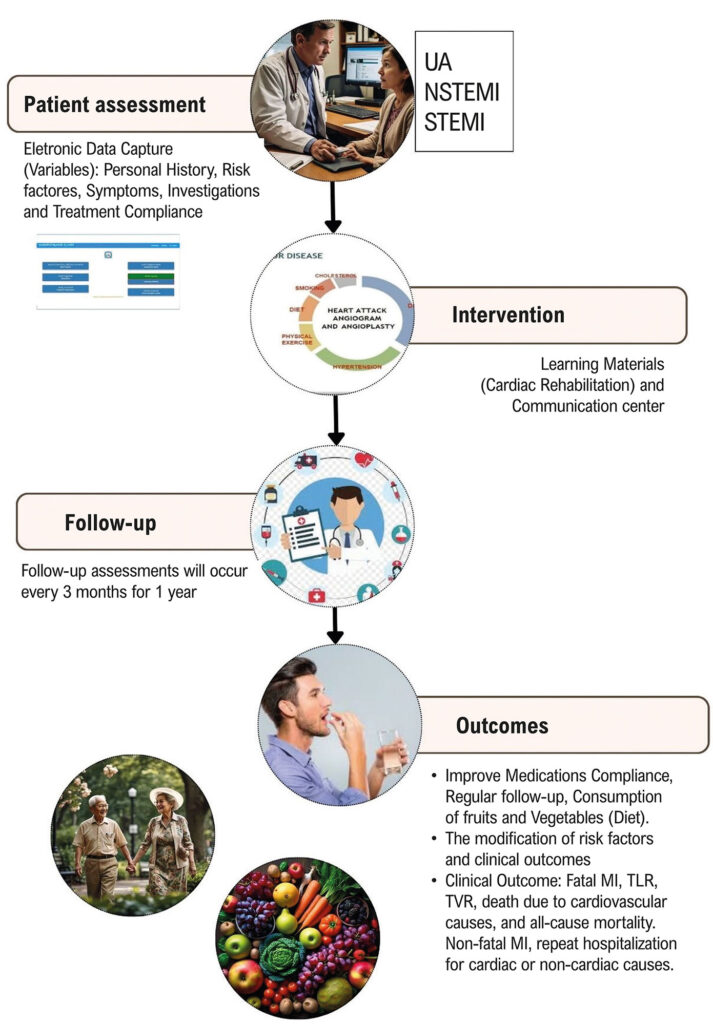International Journal of Cardiovascular Sciences. 25/fev/2025;38:e20240127.
Impact of Digital Technology Intervention on Medication Compliance, Modification of Risk Factors, and Clinical Outcome in Patients With Acute Coronary Syndrome: A Follow-Up Study
Abstract
Background
Coronary artery disease (CAD) is prevalent worldwide, presenting significant morbidity and mortality. Despite the advances in the management of CAD, the primary focus continues to be risk factor reduction, lifestyle changes, and medication adherence, all of which contribute considerably to favorable outcomes. Long-term CAD outcomes tend to be poor, especially in developing countries, due to medication non-compliance, a lack of education, and appropriate measures for the modification of risk factors.
Objectives
The present study aims to investigate the use of digital technology in assessing medication compliance, modifying risk factors, and evaluating clinical outcomes in patients with acute coronary syndrome (ACS).
Methods
A prospective, randomized study will be conducted with patients diagnosed with ACS at the Sri Jayadeva Institute of Cardiovascular Disease and Research, Mysore, and JSS Medical College, Mysore, India. A total of 522 patients will be randomized in a 1:1 ratio into either the digital intervention group or the control group. Digital technology registration will be completed during hospitalization, with guidance from the research team. Follow-up assessments will occur every three months for one year. Statistical analysis will be conducted at a 5% significance level. Categorical variables will be analyzed using the Z test for proportions or the Chi-square test, while continuous variables will be assessed using the independent sample t-test.
Results
The results will be presented after data collection and statistical analysis. This study aims to focus on clinical outcomes in patients with ACS, highlighting the importance of lifestyle modification, adherence to medications, and modifications of risk factors by digital technology, bridging the gap between patients and healthcare providers.
Conclusions
We intend for the outcomes of this study to produce an initiative for larger randomized control trials regarding web application in the management of ACS. Favorable outcomes could significantly impact the management of ACS, and web applications can be recommended as part of a routine standard of care established by societal guidelines.
Palavras-chave: digital health; digital technology; risk factors; acute coronary syndrome
348

